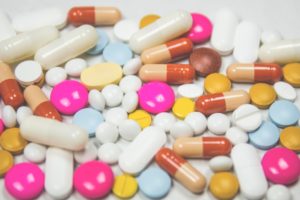Skeptical Again
I’m doing it again. Dissenting. Doubting. Questioning the status quo. Looking for new or buried information.
Thinking critically, in other words.
I know unthinking conformity is convenient, but I’ve always been an inconvenient sort of person.
It’s lonely.
This time it’s about diet, and fat, and cholesterol.
I’ve written several posts on this subject before. Here’s the first one.
I know it’s all wrong to eat meat and animal fat and stay away from plant-based food of any kind, but it solved my health problems.
I’ve had a lot of bad experience with doctors. For much of my life, I’ve been completely intimidated by doctors or anyone else in authority, especially men. I’m not afraid of blood draws and exams, but unable to speak up for myself, ask questions, or dare to Fail To Please in any way. Which means in and out of the office as fast as possible, making no fuss, not speaking except to answer questions succinctly, never disagreeing, and thanking the doctor extravagantly for their time and trouble, even if (especially if) I felt completely unseen, unheard and unsupported.
(Oh, and desperately minimizing any problems I do have so as not to be a whiner or come across as drug- or attention-seeking. Because it’s bad to need help.)
In short, fawning from the beginning of the appointment to the end.
This experience has meant I avoid health care, aside from well-woman exams and an occasional emergency visit for antibiotics or an injury.
When I have been to the doctor for things like chronic pain, insomnia, depression, and anxiety, I’ve been offered medication rather than information. I don’t want to take long-term medication. I want someone to help me understand what the underlying problem is, not slap a band-aid on it. That means I want to exchange information, which takes time, and ask questions. I want to be given resources and options.
Here in Maine I’ve found a health care provider I like and respect. She’s intelligent, personable, and doesn’t make me feel as though I’m nothing but a nuisance. With her help, I’ve caught up on all appropriate scans, screens, and tests. It’s nice to feel empowered to take care of my own health.
However, part of screenings and tests for women my age have to do with identifying risks for cardiovascular disease, and according to current standards of care I am at risk, solely because of my diet and cholesterol panel.
Current guidelines and standards are built on the longstanding lipid hypothesis, which states diets high in animal fats lead to atherosclerosis, which leads to heart disease. Other, equally longstanding evidence-based data from around the world over a span of decades suggests the opposite, not only that cholesterol is not an indicator of heart disease, but it’s actually protective against it, especially for women. Many doctors, Ph.Ds, and biochemists believe the lipid hypothesis is false and based on a severely flawed original study, which means all the current guidelines (diet and nutrition recommendations and pharmacology to reduce cholesterol) and standards of care built upon it are ineffective, at best. This is validated by staggering and rising rates of obesity, diabetes, heart disease, and other health problems in the American public since the lipid hypothesis began to change diet and nutrition guidelines, food production, and medical care in the 1950s.
However, the lipid hypothesis is enormously lucrative for Big Ag, Big Pharma, and food producers, and those entities have frightening wealth and political power, more than enough to successfully stifle any funding for unbiased studies, silence independent scientists researching diet, fat, and cholesterol, and corrupt or bury any data that does not support the lipid hypothesis.
I am not getting my information from Facebook or conspiracy theories. I’ve spent years researching and reading, both in books and online, about diet, fat, and cholesterol. I don’t take the position that current cardiovascular guidelines are wrong, but neither am I convinced they’re right. I don’t know, and I know I don’t know, but the evidence tells me there’s plenty of room for doubt. My experience tells me a high-fat, low-to-no-carb diet is the key to my own health.
I want to have a discussion about it with my healthcare provider. I want to talk about studies. I want to ask questions. I want to be allowed to have doubts and concerns. I want to weigh my overall excellent health and function against numbers that may or may not have much to do with heart disease. I want to share links and be given suggestions for research.
I want to consider the possibility that current standards of care are based on a hypothesis that is incorrect.
I scheduled a phone call to discuss some of my test results. My provider expressed her concern about one particular result and thanked me for an email I had sent her, containing several links and information sources I find useful and interesting.
She was polite. I was polite. But our previously warm and friendly connection had vanished. I don’t believe she read anything I sent. I asked a couple of questions about studies and different ways to assess cholesterol panel results, but she dismissed it all. Flat. Businesslike. Professional.
It was a disappointingly brief conversation. I was clear about what I would and would not do. We came up with a plan. We hung up.
I spent the rest of the day feeling like an extremely anxious, difficult, bad child, waiting for catastrophe because I Failed To Please.
All healthcare workers are under the gun these days. I work in a hospital myself, and come in for my share of politically-motivated bullshit regarding COVID. Healthcare providers are understandably exhausted, burned out, and defensive. I’m probably just one more patient influenced by some crazy ideology on the web, as far as my provider is concerned. She has a standard of care to adhere to that’s clean, clear, and congruent with the organization’s policies and procedures, which are congruent with the American Heart Association and all the other powerful medical organizations’ guidelines. She doesn’t have the time or energy to debate with patients about vaccines, dietary fat and cholesterol, or anything else.
But what if current cardiovascular preventive care is based on bad data? What if the truth has been buried under politics and capitalism for decades? What if I feel in the best health of my life because I am in the best health of my life, and nothing’s wrong, nothing needs fixing?
I don’t want to suffer from heart disease, cancer, or other health problems any more than anyone else does. I value my good health and work hard to eat right and stay fit. I want to learn about my own metabolism and physiology. I don’t want pharmacological fixes for issues that might not even be real problems.
I feel sad and frustrated and very alone. I’m feel as though I’m being punished for being a sceptic, and researching and thinking for myself. I’m back in the familiar pattern of asking questions and having people shut down, or withdraw and withhold.
I suppose at the end of the day we all wind up with ourselves and the best choices we can make with the information and resources we have. I know what the right thing is to do for myself at this point. I might get new information. Things might change. I might make a mistake, or be wrong, and suffer consequences. I’m prepared for all that. Things change. I can change with them.
This time I’m not blaming myself for the way I feel. This time I’m seriously considering the possibility that I’m not broken, but our healthcare system is. I’ll continue to take responsibility for my own health and well-being. I’ll continue to read and research as new data and studies become available for review. I’ll continue to doubt, dissent, question, and seek information.
I cannot blindly follow an organization, a system, or a set of expectations and rules from anyone. Data can be and is misinterpreted. It can be frankly corrupted by politics and capitalism. Much of what I’ve learned in my life I’ve had to unlearn and replace with something more effective. I’ve never been able to understand why we are so resistant to being wrong. How can we ever learn if we can’t be wrong? How can we ever go forward and build on our experience and observations? How can we ever hope to improve anything?
So here I am, skeptical again, and paying the price for it. But I’m going to stay on my side and continue to support my healthcare choices, even if I can’t find professional support. I’m not going to fawn, or let my fear chose for me, or apologize for who I am. I’m going to exercise my power to say yes and no, think critically, and advocate for myself, regardless of the expectations of others.






